GST Council to meet over eGaming amendments; Meta’s Nick Klegg on AI’s role in tech & more
Also in this letter:
■ Together launches second fund of $150 million
■ Edtech firms plan bigger offline play
■ Tech Mahindra Q1 profit slips 39% to Rs 693 crore
Online gaming: GST Council meet on August 2 over amendments

The Goods and Services Tax (GST) Council will meet virtually on August 2 to consider amendments necessary for the levy of 28% GST on online gaming, casinos, and horse racing. The Council is expected to thrash out issues such as taxation of winnings, among other matters flagged by the gaming industry.
Driving the news: “The council will deliberate upon the changes to the GST law to implement the decision taken at its last meeting,” a government official told ET. Another official said there was a need to provide clarity on what comprises full face value if players use their winnings to play a game.
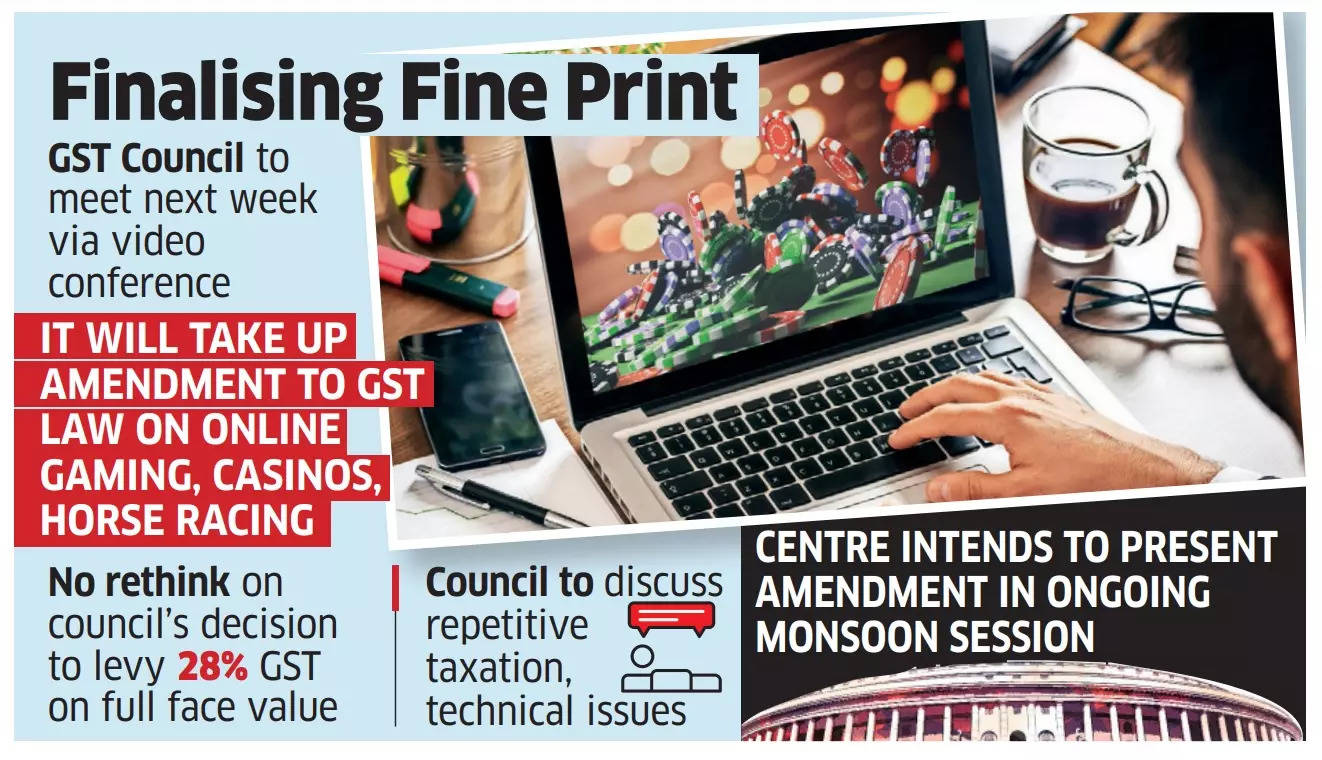
From the horse’s maw: “There are concerns as to (whether) it will lead to taxation of winnings. The law has to be clear and unambiguous,” the official said, adding that the draft amendment is almost ready, and the fitment and the law committees are working on the fine print. A committee of tax officers from the centre and the states is referred to as a fitment committee.
Carpe diem: As Indian online gaming companies find themselves in a hole with the proposed 28% GST on the full value of a game, international firms such as winbuzz.com and gamer777.com have stepped up their efforts to lure Indian gamers.
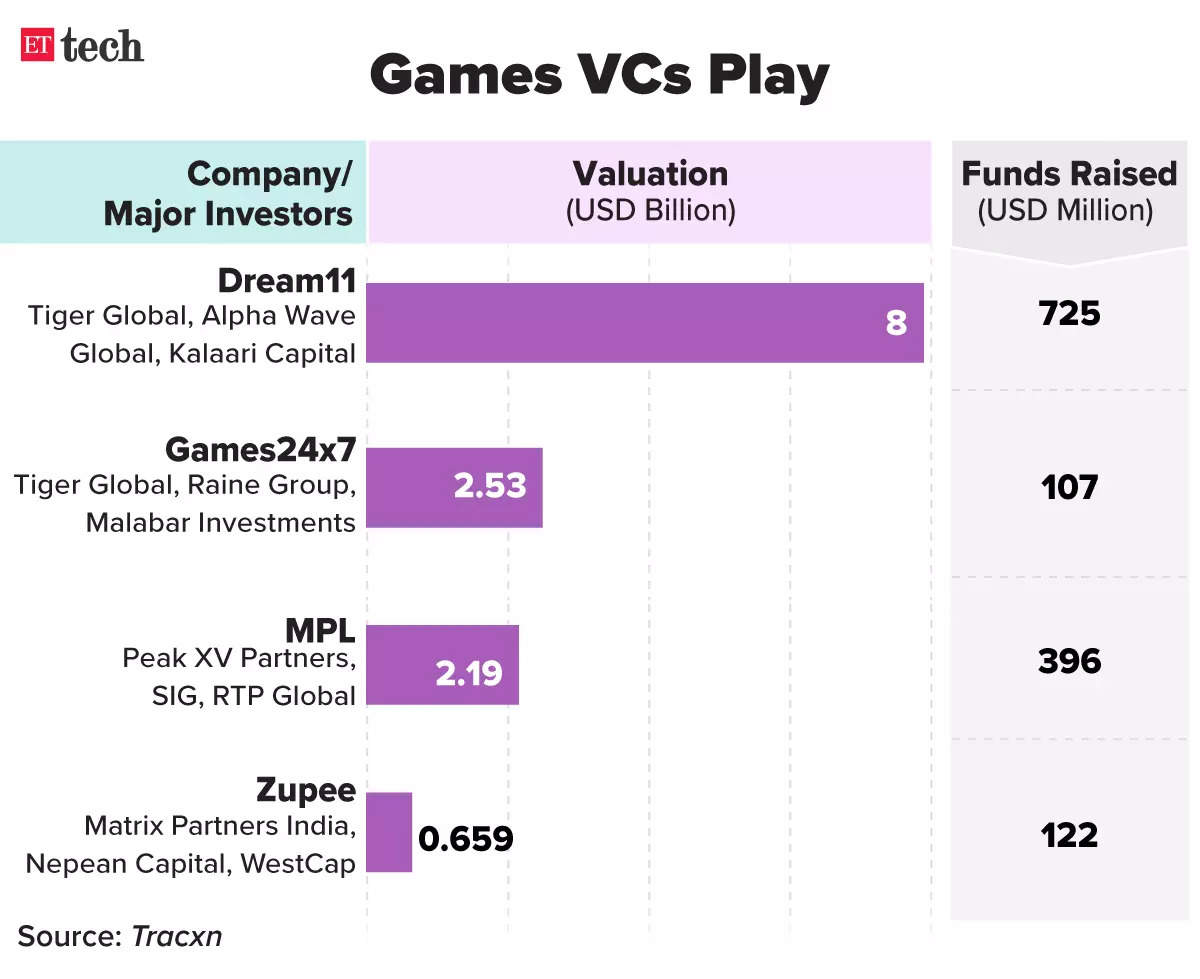
They have roped in influencers and are offering them up to Rs 1,000 per post on social media platforms such as X (Twitter), Instagram and Facebook, asking users to switch to their platforms.
Recap: On July 11, the GST Council imposed 28% GST on horse racing, casinos, and online gaming. Gaming companies and their representative organisations have said the decision would be “catastrophic” as it would lead to taxation of winnings as well, making the business unviable.
Call for clear distinction: A group of more than 45 video game developers have approached the centre seeking a clear distinction between real money gaming, fantasy sports, and themselves from a policy perspective.
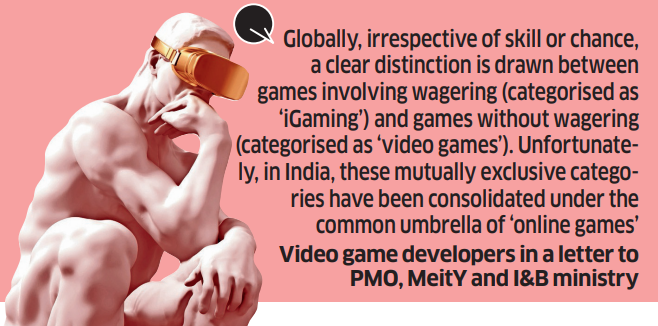
These developers – including Outlier Games, Dot9 Games, Lucid Labs, Newgen Gaming and SuperGaming — have flagged that recent campaigns by the real money gaming industry “project a homogenous image and suggest that the entire games industry of India is adversely affected” by the proposed 28% goods and service tax (GST) on online gaming.
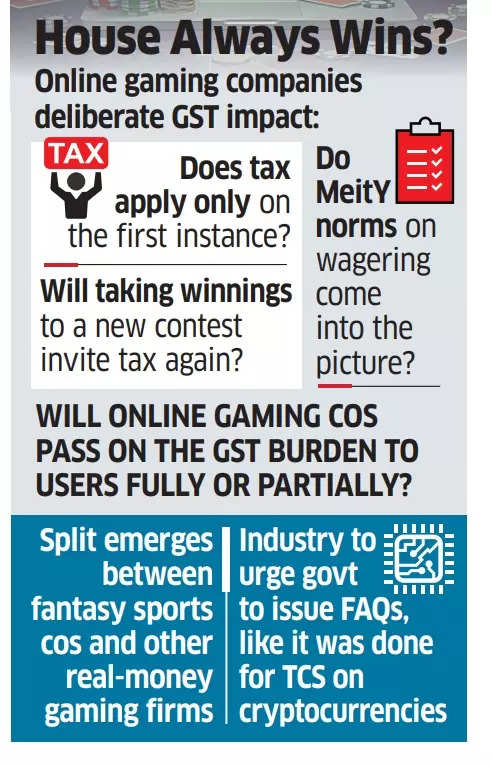
Read our detailed coverage on GST impact on online gaming sector
Every tech firm will soon be an AI company, says Meta’s Nick Clegg
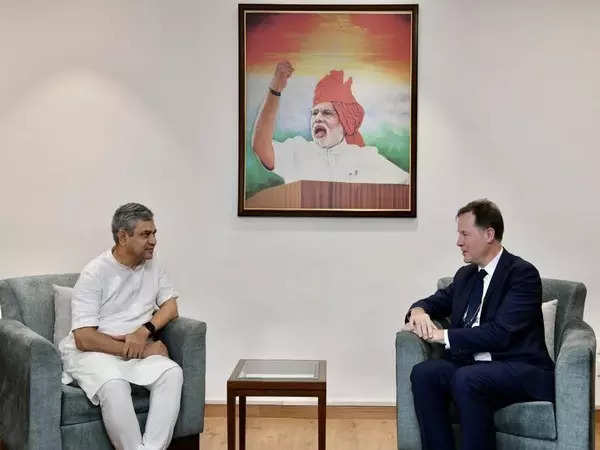
Union IT minister Ashwini Vaishnaw and President of Meta’s Global Affairs Nick Clegg
Days after Meta unveiled its large language model LLaMA 2 to take on OpenAI, Nick Clegg, president, Global Affairs, at Meta, spoke about the Facebook parent’s AI bets and India’s role in the AI revolution in an interaction with ET. He termed India, the EU, and the US the big regulatory planets, calling for them to “align more closely” on AI. (Llama stands for Large Language Model Meta AI).
Edited excerpts:
On Meta’s AI strategy: Meta has been in AI for a very long time. Over the last decade, we’ve open-sourced thousands of AI databases and models. Obviously, the whole technology has been given a shot in the arm with the development of generative AI and the emergence of these large language models.

Invent, don’t reinvent: Indian developers, entrepreneurs, researchers, and academics don’t need to spend billions of dollars because it’s extremely expensive to build large language models. This also works for us because the more people innovate using LLaMA, the more we can incorporate those innovations into our own products. This is a terrifically exciting moment in technology. All tech companies will become AI companies because it is going to be so prevalent.
India’s role in AI’s rise: India is already the world’s second-largest developer ecosystem. Given the dynamism, hunger, and technical expertise of people in this country, we will see a huge amount of AI-powered innovation here.
On regulation: It’s of fundamental importance that there should be as much alignment as possible between major jurisdictions, because this technology is far bigger than any one country, or any one company or sector.
Girish Mathrubootham-led Together launches second fund at $150 million
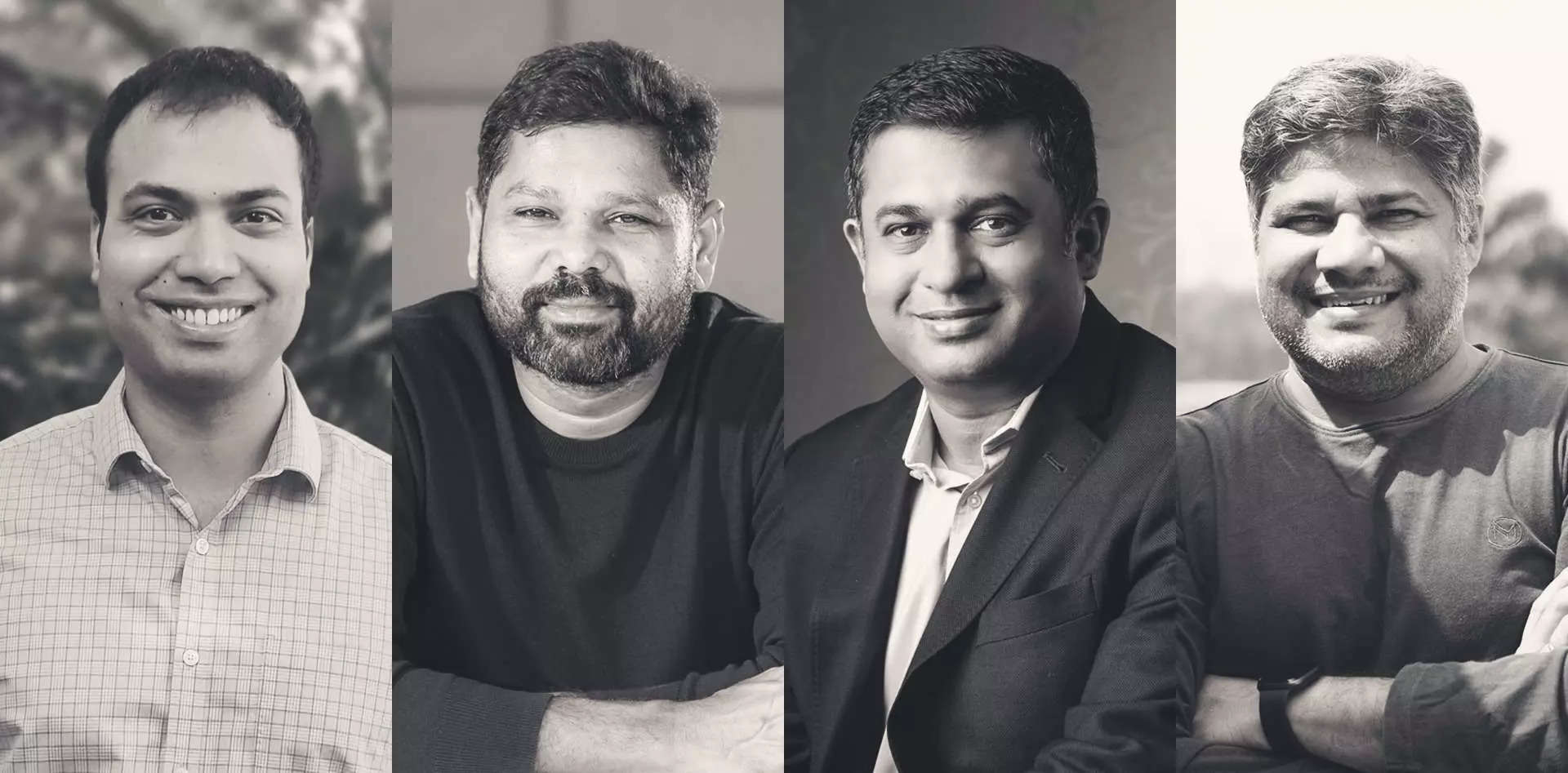
(L-R) Together fund founders Shubham Gupta, Girish Mathrubootham, Manav Garg, Avinash Raghava
Together Fund — led by Freshworks founder Girish Mathrubootham and Eka Software founder Manav Garg — has announced its second fund worth $150 million. The fund will continue backing opportunities in the Indian software-as-a-service (SaaS) and artificial intelligence (AI) space.
Fund funda: While the second fund will continue backing 20-25 companies across seed to series A rounds, it might make follow-on investments in portfolio startups until series C, with cheque sizes of around $20 million. It has allocated almost 50% of the corpus across both its funds for follow-on investments in top performers in its portfolio.
Word-for-word: “In light of this once-in-a-generation SaaS and AI opportunity, we are extending our founder-first philosophy with our second fund, supporting founders from the inception stage of their journey. We are excited to partner with these audacious entrepreneurs who need bold and committed investors with extensive operating experience,” said Mathrubootham, founding partner of Together Fund.
Contrary-wise? Together’s new fund comes at a time when investment in Indian SaaS firms has fallen considerably, to $635 million in the first half of 2023 from $3.4 billion for the same period last year, according to research firm Venture Intelligence.
Management consulting firm Zinnov and venture capital firm Chiratae Ventures have marked down 2026 revenue projections of SaaS startups from $100 billion to $26 billion.
Edtech firms going hybrid to drive growth post-Covid

With offline education gaining more traction in a post-pandemic world, edtech companies such as Physics Wallah, Unacademy, BrightChamps, Vedantu, UpGrad, and Simplilearn are gravitating towards a bigger play in the offline space, as they increasingly adopt a hybrid approach.
Hybrid heaven? The edtechs say that the return to pre-Covid normalcy has spurred renewed interest in offline learning, driven by the desire for social interaction and direct teacher-student engagement. However, the digital shift is here to stay, as learners continue to seek the flexibility and accessibility offered by online education.
Radio CEO: “These centres accounted for 40% of our revenue this year. In 2023-24, we anticipate substantial growth in our offline operations as we add more centres by next year,” Physics Wallah Offline chief executive Ankit Gupta told ET. “We firmly believe that the future of education lies in a blended approach,” he added.
Who’s doing what? Physics Wallah, a unicorn, says it has embarked on a strategic expansion plan to establish technology-enabled offline centres. Live-learning edtech platform BrightChamps, which has a standalone offline offering, its Next-Gen Hub, in Vietnam, is looking to open several more across key geographies. ET reported in April that Unacademy intends to scale up its offline centres to 58 from about 10.
Tech Mahindra Q1 profit drops 39% to Rs 693 crore
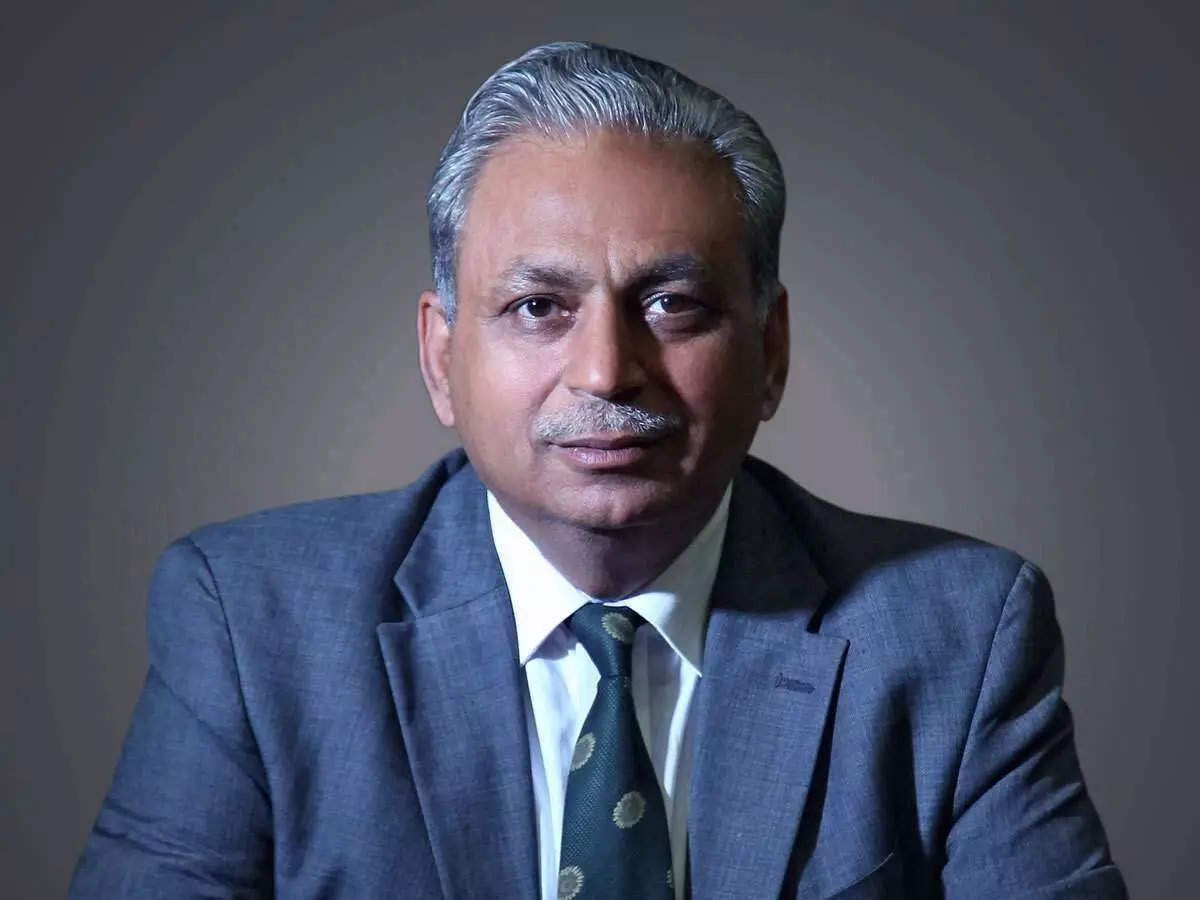
Tech Mahindra CEO CP Gurnani
Tech Mahindra has reported a nearly 40% year-on-year (YoY) decrease in net profit in the three months ending in June, which it said was its toughest quarter in five years, marked by client-specific issues and “stretchy” deal conversion cycles.
Slow quarter: Chief executive officer CP Gurnani said the quarter was marked by large-scale slowdowns, particularly across communication clients. “This quarter is probably one of the toughest quarters I have seen in the last five years, but we believe that we will be able to bring back our growth trajectory,” Gurnani said.
Financials: The communications, media, and entertainment (CME) vertical, which accounts for about 38% of its revenue, was down 8.2% from a year ago. BFSI revenue was down 3.2% sequentially and 5.4% on-year. Its Europe revenues are down 6.7% over the prior quarter, while US revenues are down 0.5% on-quarter.
Earnings X-ray: The IT earnings season concluded with Tech Mahindra. While the country’s largest software exporter, TCS, reported a 17% YoY rise in profit for the first quarter of FY23-24, Infosys, the second-largest, saw an 11% bump in profits. Bengaluru-based Wipro’s profit rose 12% YoY, and HCLTech saw an 8% expansion in its margins.
Other Top Stories By Our Reporters
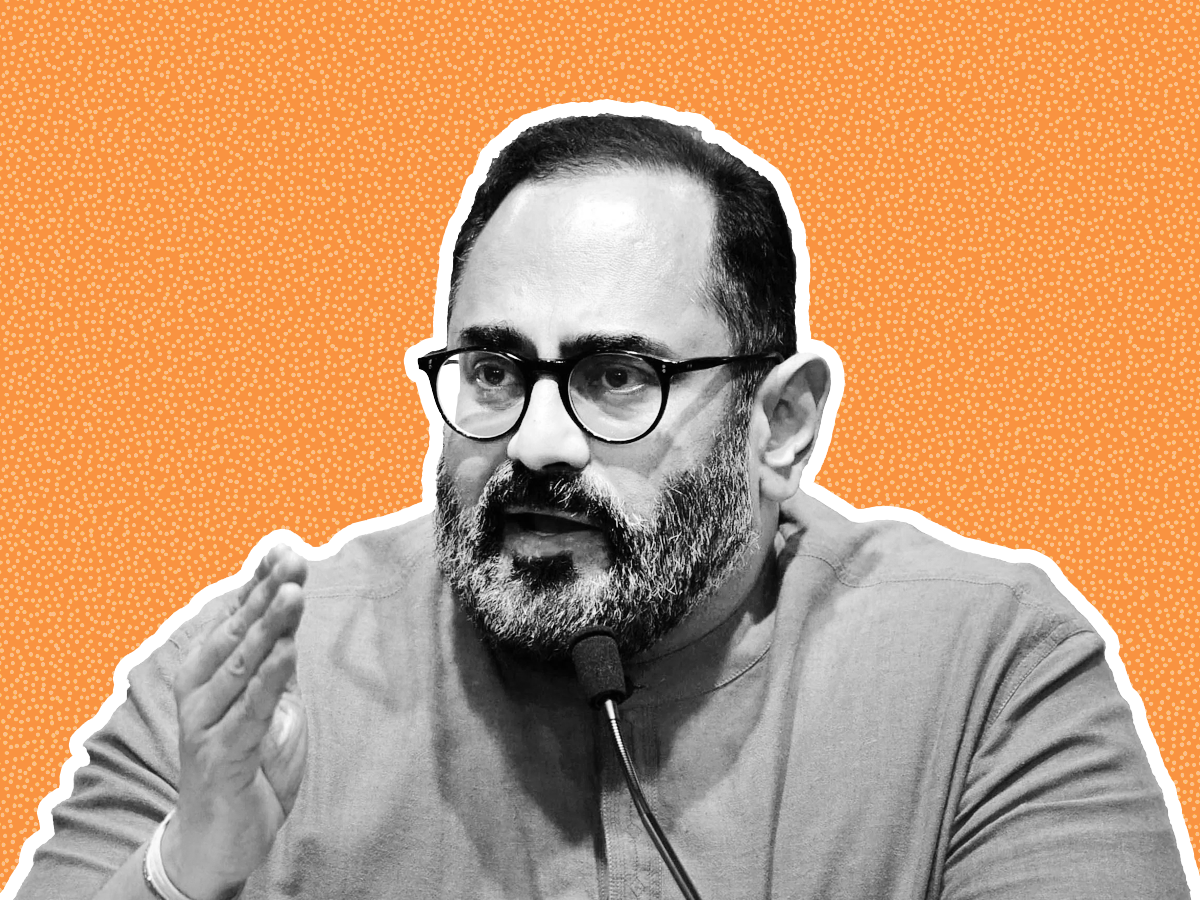
Minister of state for electronics & information technology Rajeev Chandrasekhar
Robotics panel to study strategy and govt’s role: MoS IT Rajeev Chandrasekhar | An inter-ministerial committee has been set up to examine global best practices on the role of government in supporting and fostering the domestic robotics ecosystem, MoS IT, Rajeev Chandrasekhar said.
Fraud management platform Effectiv raises $4.5 million: Effectiv, a real-time fraud and risk management platform for financial institutions and fintech firms, has raised $4.5 million in seed funding led by Silicon Valley-based Better Tomorrow Ventures. The funding round also saw participation from Accel, among others.
ONDC-focused firm Plotch.ai raises funding from Antler, Peak XV: Plotch.ai, a firm that helps build tech infrastructure that enables companies to integrate with the Open Network for Digital Commerce (ONDC), said it had raised pre-seed funding in a round led by Antler India. The amount was undisclosed.
Global Picks We Are Reading
■ Israel’s tech companies are fighting Netanyahu — or leaving the startup nation (Wired)
■ Adam Selipsky: There will not be one generative AI model to rule them all (Financial Times)
■ The little search engine that couldn’t (The Verge)
For all the latest Technology News Click Here

